By Kathryn Hayward, MD and David L. Thomas, Jr., JD
The coronavirus is changing the world. As each of us focuses on protecting ourselves and those we love, two questions dominate most people’s thoughts:
How do I cope with and protect my world right now?
How do I protect everything I love and cherish as I look to my future?
We feel stress from the uncertainty, especially as the pandemic continues week after week. Uncertainty makes us want to act, to do something. If we scan the globe for specific things we can do, we find glimmers of hope, guidance and wise leadership. Jacinda Arden, Bill Gates, Dr. Michael Greger, Dr. T. Colin Campbell and Nelson Campbell, and Lauren Chandler offer some light.
1. Look to the experience of New Zealand.
Jacinda Ardern, Prime Minister of New Zealand, and her colleagues are protecting their country with a model that could inspire the rest of the world. Ardern, in social media, encourages New Zealanders to:
 “Act as if you already have Covid-19”
“Act as if you already have Covid-19”
“Be creative, practical and community minded”
“Rally, look after one another”
“Be strong, be kind, unite against Covid-19”
A four-level Alert System was put in place for social and public health measures.
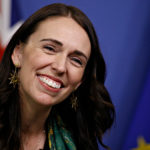
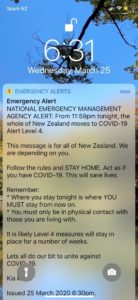 Ardern and colleagues introduced Bubble Groups: “the group of people who you will be with for the next four weeks”. Announced several days ahead, citizens expected the alert on their cell phones at 6:30pm on March 25.
Ardern and colleagues introduced Bubble Groups: “the group of people who you will be with for the next four weeks”. Announced several days ahead, citizens expected the alert on their cell phones at 6:30pm on March 25.
Where you Stay Tonight is Where You Must Stay from Now On
A “Bubble Group” can walk outside, as long as, when you pass other “Bubble Groups,” you keep 2 meters away from them. A “Bubble” can play sports together, as long as you don’t play on playgrounds, since the virus can live on the metal equipment.
The “Getting Through This Together” campaign includes mental health support, particularly for parents who are home schooling their children.
Ardern and her colleagues have eased fears and uncertainties by giving clear guidance to New Zealanders about their roles in dealing with the coronavirus crisis, coupled with kind, humorous, compassionate messages (the Tooth Fairy and Easter Bunny are Essential Workers), support of medical workers and financial support for affected citizens.
As of this date, the infection rates, recovery rates and death rates from Covid-19 are dramatically lower in New Zealand than any other developed nation.
2. Learn from experience about preparedness: Bill Gates
 In general, we humans are not so adept at preparedness. As a world we are struggling with the current pandemic despite warnings and advice from knowledgeable and experienced experts. For example, in March 2015, Bill Gates gave a TED talk and wrote a New England Journal of Medicine article that warned us about the 2019 coronavirus pandemic. Not coronavirus specifically, but a respiratory virus that would be transmitted by asymptomatic people and had the potential to infect millions of people globally and cost the world somewhere around three trillion dollars. In these prescient offerings, Gates made recommendations for preparing for future epidemics based on experience with the Ebola virus in West Africa:
In general, we humans are not so adept at preparedness. As a world we are struggling with the current pandemic despite warnings and advice from knowledgeable and experienced experts. For example, in March 2015, Bill Gates gave a TED talk and wrote a New England Journal of Medicine article that warned us about the 2019 coronavirus pandemic. Not coronavirus specifically, but a respiratory virus that would be transmitted by asymptomatic people and had the potential to infect millions of people globally and cost the world somewhere around three trillion dollars. In these prescient offerings, Gates made recommendations for preparing for future epidemics based on experience with the Ebola virus in West Africa:
RECOMMENDATIONS FOR PREPARING FOR FUTURE EPIDEMICS
The world needs to build a warning and response system for outbreaks. This system should:
- be coordinated by a global institution that is given enough authority and funding to be effective
- enable fast decision making at a global level
- expand investment in research and development and clarify regulatory pathways for developing new tools and approaches
- improve early warning and detection systems, including scalable everyday systems that can be expanded during an epidemic
- involve a reserve corps of trained personnel and volunteers
- strengthen health systems in low- and middle-income countries
- incorporate preparedness exercises to identify the ways in which the response system needs to improve
3. Learn about the source and prevention of pandemics: Michael Greger, MD
 Where do viral pandemics come from and what can we do to prevent them from occurring? Michael Greger, MD in 2008 gave a significant talk on this subject, called Pandemics: History and Prevention. It is a one-hour investment in your time that is especially poignant because it predicted, 12 years ago, pandemics such as the one we are now experiencing.
Where do viral pandemics come from and what can we do to prevent them from occurring? Michael Greger, MD in 2008 gave a significant talk on this subject, called Pandemics: History and Prevention. It is a one-hour investment in your time that is especially poignant because it predicted, 12 years ago, pandemics such as the one we are now experiencing.
Michael described the history of viruses that have killed large numbers of people, tracing their origins to the way we raise animals for food production. Not only do the current intensive animal farming methods provide environments for mutation and propagation of viruses on a grand scale, but also they transmit the viruses through animal products and the byproducts of their cultivation.
4. What to do to boost our health and immune systems: T. Colin Campbell, PhD and Nelson Campbell
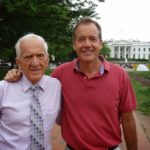 What can we do as individuals? We each have great power in our own lives to make changes that strengthen our immune systems and support our health so that we are more likely to survive a novel virus if it infects us.
What can we do as individuals? We each have great power in our own lives to make changes that strengthen our immune systems and support our health so that we are more likely to survive a novel virus if it infects us.
One of the most powerful and far-reaching things we can do is move to whole food, plant-based eating. Dr. Greger promotes this solution, as do T. Colin Campbell, PhD and his son Nelson. Watch this 10-minute conversation between Colin and Nelson, Director of the film PlantPure Nation and the non-profit PlantPure Communities: Our Most Important Defense Against Covid-19: Finding Hope Through Scientific Evidence.
In their conversation, Colin and Nelson describe scientific research that shows that whole food, plant-based eating increases antibody responses to viruses and converts an active virus to an inactive one, thus improving a person’s ability to overcome an infection.
They also caution that animal-based foods increase levels of viral antigens (the infectious parts of viruses), thus putting an infected individual at higher risk for a worsening illness.
We are heartened that, during the coronavirus pandemic, people are more open than in the past to whole food, plant based (WFPB) eating. For one thing, while in quarantine some people have time at home to learn new ways of cooking and eating and are finding their results to be delicious and satisfying!
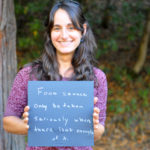 Lauren Chandler of Lauren Chandler Cooks offers virtual kitchen visits and cooking instruction, helping people learn whole, plant-based eating in the comfort of their own homes.
Lauren Chandler of Lauren Chandler Cooks offers virtual kitchen visits and cooking instruction, helping people learn whole, plant-based eating in the comfort of their own homes.
WFPB eating supports the effort to protect our world in four important ways:
- Individual Health: Supporting immunity, decreasing inflammation and being healthier
- Earth Health: The single most important thing an individual can do to affect climate change is eat WFPB BBC News August 8, 2019 Plant-Based Diet Can Fight Climate Change.
- Animal Health: The virus is novel to humans, having jumped from animals to humans, because of consuming and being exposed to animals and animal products NYT April 9, 2020 Animal Viruses are Jumping to Humans. Forest Loss Makes It Easier.
- World Hunger: American Journal of Clinical Nutrition June 2014 Sustainability of Plant-Based Diets: Back to the Future. If you wish to improve world hunger, eating WFPB will have an important impact.
As we saw from Michael Greger’s talk and from Colin and Nelson Campbell’s conversation, and from the articles referenced above, humans’ insatiable appetite for inexpensive animal food products is directly tied to the major public health and environmental challenges we face worldwide. Our consumption of animal products impairs our health and makes us more vulnerable to viruses like the coronavirus. It also supports an animal production industry that breeds and transmits novel viruses, damages our planet, and makes it much harder to feed the world’s population.
If the current pandemic has taught us anything, it is that there are dangers that do not respect international boundaries and that, in the end, all of us who share this planet are in this together. We may act locally but we must do so in concert with others across the globe in order to protect our own health and way of life—perhaps even our very existence. We must adjust our habits and be mindful of the effect we have on others in our communities and throughout the world. And we must prioritize these concerns as we select our leaders and evaluate the sources and accuracy of information on which we base our decisions.
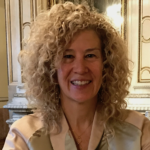 Kathryn Hayward, MD co-founded and developed International Integrators because she loves to collaborate with others who share her vision for global Integrative Health. She brings to International Integrators her experience in the practice of conventional medicine as a primary care internist at Massachusetts General Hospital and Harvard Medical School, and in the practice of Integrative Health. Kathryn marvels at the power of collective, conscious action on the part of like-minded individuals to manifest change, and loves contributing to that action.
Kathryn Hayward, MD co-founded and developed International Integrators because she loves to collaborate with others who share her vision for global Integrative Health. She brings to International Integrators her experience in the practice of conventional medicine as a primary care internist at Massachusetts General Hospital and Harvard Medical School, and in the practice of Integrative Health. Kathryn marvels at the power of collective, conscious action on the part of like-minded individuals to manifest change, and loves contributing to that action.
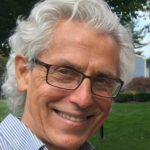 David L. Thomas, Jr., JD co-founded and developed International Integrators in concert with his passionate desire to initiate change in the way that we care for ourselves and each other, and the way we interact with and affect our natural environment. He brings his background as an attorney and businessman, and his expertise in nutrition and plant-based cooking and eating, to the collaborative effort to identify, mentor and support leaders in Integrative Health. David holds a BA in Spanish Literature from Haverford College, a JD degree from Georgetown University and a certificate in plant-based nutrition from the T.Colin Campbell Center for Nutritional Studies and Cornell University.
David L. Thomas, Jr., JD co-founded and developed International Integrators in concert with his passionate desire to initiate change in the way that we care for ourselves and each other, and the way we interact with and affect our natural environment. He brings his background as an attorney and businessman, and his expertise in nutrition and plant-based cooking and eating, to the collaborative effort to identify, mentor and support leaders in Integrative Health. David holds a BA in Spanish Literature from Haverford College, a JD degree from Georgetown University and a certificate in plant-based nutrition from the T.Colin Campbell Center for Nutritional Studies and Cornell University.


